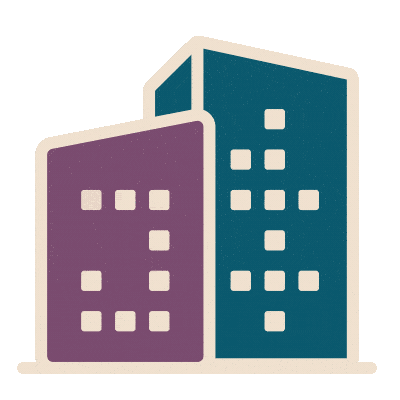Metropole Head Office: Taipei, Taiwan, China
Metropole’s office earned WELL Certification in September 2018 following their achievement of LEED Platinum.
Metropole Industrial Co. Ltd., an innovative leader of the HVAC industry, is the company behind Taiwan’s first WELL Certified interiors project at the Gold level. Their new 6,867 sq ft (638 sq m) head office in Neihu District, Taipei City was designed to advance wellness throughout the workspace.
“The Metropole Head Office project is a true testament of leading by example,” said Rick Fedrizzi, Chairman and CEO of the International WELL Building Institute™. “Metropole’s project team left no doubt that prioritizing employees’ health and well-being leads to a reward that warrants all efforts.”
Metropole’s office earned WELL Certification in September 2018 following their achievement of LEED Platinum.

Background
Why did you decide to pursue WELL Certification for Metropole?
Metropole took on the challenge of pursuing WELL Certification after achieving LEED Platinum certification under the LEED v4 rating system in our newly renovated, energy-efficient head office. We wanted to upgrade our space to make a positive impact on employees’ well-being and create a desirable and productive place for everyone to work, collaborate and enjoy.
How did your team approach the WELL Certification process?
We formed a team comprised of designers, contractors and consultants, and went through a high-touch education program to fully understand the concepts of WELL and how it differs from other green certifications that focus on energy and environment. We discussed and developed ideas from a health and wellness perspective, conducted existing and new employee interviews, surveys and analysis. We explored what more we could do to meet employees’ needs and wants to promote wellness within the workspace.

Image above: Polished concrete floors meets indoor fixtures and furniture made from Forest Stewardship Council (FSC) certified cypress.

Image above: Separate rooms for printers prevents noise disruption and ensures unwanted air pollutants don’t travel into the open office areas.
What challenges did you face as you were incorporating WELL features and how did you solve them?
One of the main challenges we had was maintaining our LEED credit while meeting WELL ergonomic requirements without having to change existing furniture. In order to stay compliant with both standards, we replaced the gas lift pistons and provided custom-made back cushions to meet the Human Factors and Ergonomics Society (HFES) width and height requirements within both WELL and LEED.
Another challenge we had was the limited space in the office, which made it difficult to implement standing workstations. Our solution was to replace the low sofas in the common area with natural wood standing tables. This way, staff dropping by from other offices and those who work on laptops can find space at these adjustable desks. Moreover, meetings can be conducted in these areas to maximize the usage of the space.
Highlights

COMFORT
Feature 76: Thermal Comfort
Intent: To promote occupant productivity and ensure a sufficient level of thermal comfort.

Image above: Chilled beam systems are installed throughout the office space, offering optimal noise, spatial and thermal comfort for employees. With proper control setup of the system, dry cooling is achieved without any condensation, ensuring humidity comfort and high air quality.

COMFORT
Feature 73: Ergonomics - Visual and Physical
Intent: To reduce physical strain and maximize ergonomic comfort and safety.

Image above: Standing workstations with two adjustable heights were placed in the main corridor where employees are able to conduct quick meetings, collaborate and view drawings and products with clients.

MIND
Feature 88: Biophilia I - Qualitative
Intent: To nurture the innate human-nature connection within the project.

Image above: The office features a small relaxation area next to a wall lined with various local ferns, where employees can recharge in private. The majority of furniture and partitions used in Metropole were constructed of locally sourced, Forest Stewardship Council (FSC) certified cypress to provide a welcoming, warm atmosphere.
Scorecard
 Looking to the future
Looking to the future
What positive impacts resulted from your WELL Certification?
Overall, WELL Certification has led to positive experiences for Metropole’s head office employees. The WELL concept framework provides a structured way to consider these experiences. A snapshot of their feedback is captured below:
- On Water: “At first, I was skeptical about the drinking water system, but the water tastes more fresh, even sweet.”
- On Light:“The…light qualities are nice and warm, much better than the previous office…” “It’s really nice that I can adjust the brightness levels on my lamp.”
- On Movement and Sound: “I like how I can go to the back area to make private phone calls, gives me a chance to stretch my legs while enjoying my privacy.”
WELL is for people and a way for organizations to demonstrate their commitment to employee health and wellness. As Eric Hsieh, President of Metropole Co. Ltd., put it, “providing our employees with a safe, healthy and comfortable work environment has been our long-term goal and pursuit. Achieving the WELL Certification at the Gold level is a testament to our efforts and, at the same time, serves as a motivation for us to aim even higher.”
Project team
- Owner: Metropole Industrial Co. Ltd
- Interior Design: rioconception Co., Ltd.
- LEED Consultant: Greenjump Sustainability
- WELL Consultant: Greenjump Sustainability

 Looking to the future
Looking to the future




